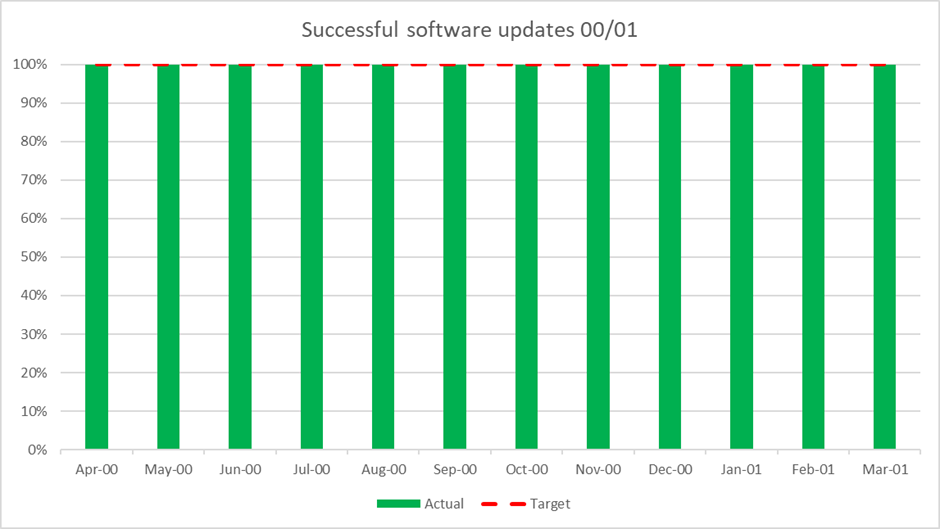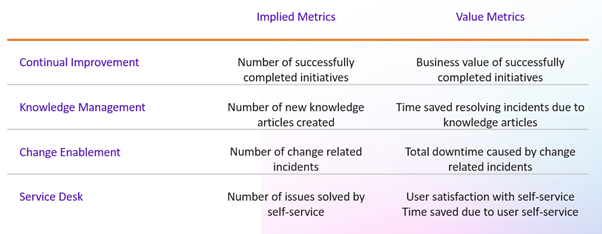Have you ever asked yourself, “Why do we measure things?” It’s a question that often goes unasked, yet it lies at the heart of our desire to understand the world around us. In a recent itSMF UK member meet-up, we explored the various reasons why we measure and the importance of doing so effectively.
After all, why bother measuring something if it’s not going to help us make better decisions? The conversation delved into the dangers of measuring things just for the sake of it, using examples of meaningless metrics from the past.
Meaningless metrics
We’ve all seen a dashboard or a report where everything is green right? How could we possibly improve if everything already looks perfect?

In the example above, the word ‘successful’ means ‘was it deployed in production?’. It’s easy to measure but ultimately meaningless. Surely a better measure would be ‘did the update provide the value to the users as expected?’
The stakeholder ‘so what?’ test
We need to consider who needs the information contained in a report and what they may value. Is it going to help them make better decisions or is it a ‘nice to have’? It’s powerful to ask ‘so what?’ and be brutal. ‘We’ve always measured that’ isn’t a good enough response!
Another consideration is the importance of context in understanding the impact of metrics. For example, one incident can have a significant impact while multiple incidents may have a relatively low impact. Counting the number of incidents therefore doesn’t tell us the full story but it is worth measuring for context.
Experience Level Agreements (XLAs) can be used as a tool to bridge the gap between implied and actual metrics (more on that later). XLAs focus on the experience and measure the effectiveness of services in achieving their intended outcomes.
Another important point often overlooked is dimensioning the data in a meaningful way that is relevant to different stakeholders. Using incident data as an example, a service desk manager will need to see data relating to their service desk. A service manager dedicated to a customer will only need to see data for their specific customer, while a product manager will need to see data for their supported product. The same data but dimensioned in a different way to make it relevant.
Implied metrics versus value metrics
One of the most interesting parts of the meet-up was the discussion around implied metrics versus those that actually measure value. It’s all too easy to fall into the trap of assuming that a metric implies more value than it delivers. We shared examples of both implied and actual measurements, and considered which were more valuable. Examples are provided below.

Easy metrics can be obtained out-of-the-box from tools like ServiceNow or Remedy. But do they measure value, or do they imply it? Measuring value is often more difficult. It can’t be automated as value can be perceived differently by different stakeholders. Sometimes the only way to ascertain whether what you deliver is valuable is to ask.
Closing thoughts
In conclusion, measuring is only useful if it helps us make better decisions. Otherwise, it’s a waste of time. By identifying actual metrics that matter to stakeholders, organisations can better understand the impact of their actions and make informed decisions that drive real value. Effective metrics are crucial to understanding the world around us and making better decisions that positively impact our lives and businesses. They take effort, lots of effort. But should that stop us measuring value?

Sean Burkinshaw
Sean is an ITIL Specialist at BT, an itSMF UK Group Chair and Winner of the Ashley Hanna Contributor of the Year award 2022.


